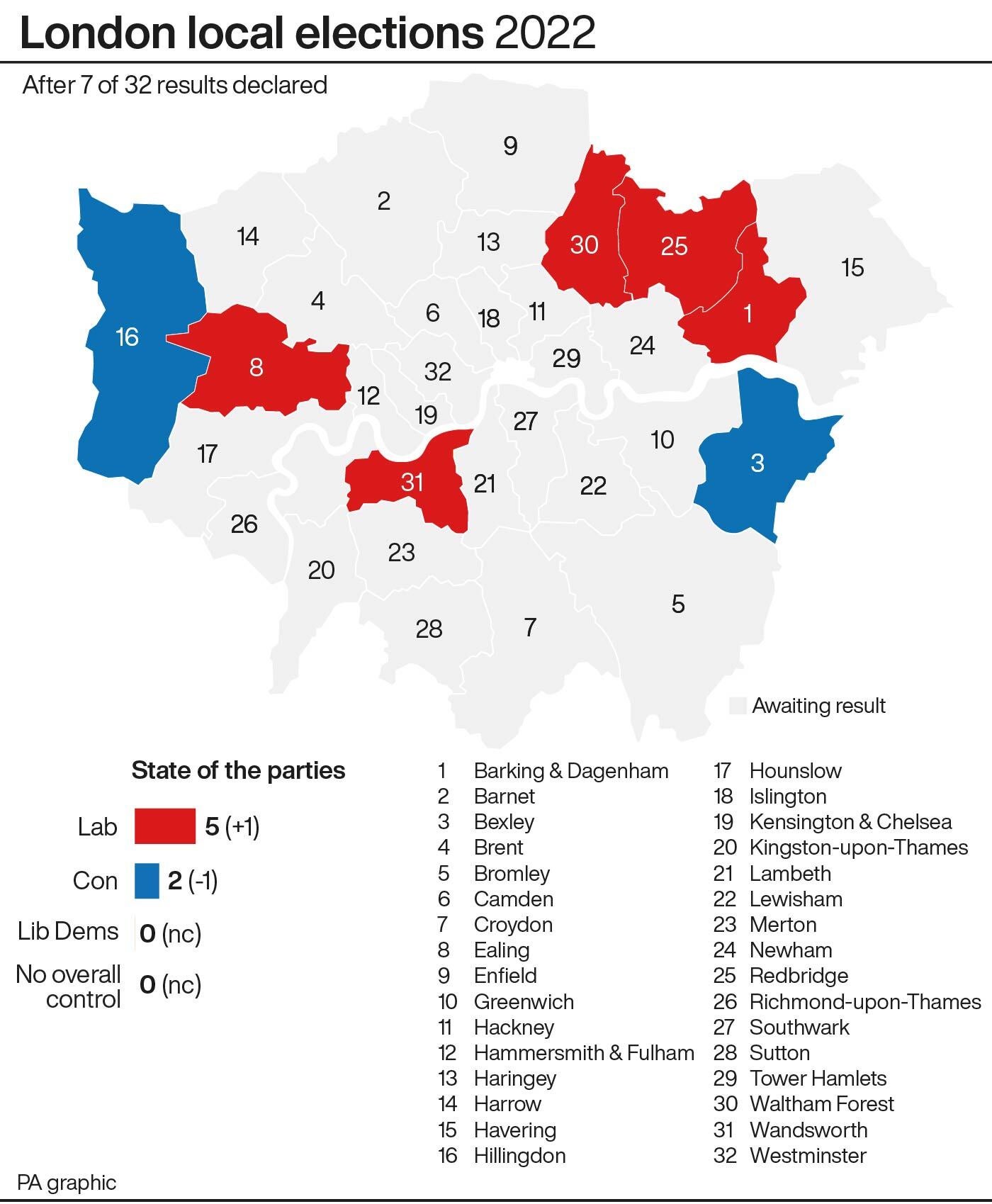
The Labour party has won control of three flagship Conservative London boroughs in the local elections.
Wandsworth and Barnet borough councils, and Westminster City Council, all previously controlled by the Conservatives, are now in Labour hands.
It is the first time Labour has ever won Barnet and Westminster since both councils were created in the 1960s.
The new Labour leader of Wandsworth suggested his party’s victory signalled “time for a change” at the top of Government.
Barnet’s Conservative group leader said the result did not “bode well” for the Conservatives at the next general election, as the partygate scandal and the cost of living crisis impacts on the party’s vote share.
Labour victories in the three London councils are regarded as a bellwether for the party’s performance at the next general election.
Wandsworth first turned blue in 1978 and has been in Tory control ever since, until Labour’s overnight gain.

Reportedly Margaret Thatcher’s favourite Conservative council, the authority was an early proponent of Thatcherite policies, including the right-to-buy and the privatisation of local services.
Wandsworth boasts one of the lowest average council tax rates in England, with Boris Johnson pointing to the low rates as an example of Conservative party competence in local office.
A Labour party source described the loss as “monumental” for the Conservatives.
“This was the Tories’ jewel in the crown,” they added.
The borough’s new Labour leader Simon Hogg promised to “build a compassionate council that truly listens, and keep that same low council tax”.
He added: “When we were calling around on voters we didn’t even have to raise partygate, we didn’t have to mention Boris Johnson. People have formed their own views on this Government, so I am afraid it is time for change at the top as well.”
Barnet council has only ever been in Conservative control since it was created in 1964.
In 2014, Labour came close to gaining control, but the Tories retained a narrow majority.
In 2018 the gap between the ruling Conservatives and the Labour opposition widened, with concern among the north London borough’s large Jewish population about the Labour antisemitism scandal cited as a reason.
Ahead of the result, leader of the Labour group on Barnet council Barry Rawlings told the BBC: “I’ve been feeling confident for a while, I think we’ve had a very good campaign, got good candidates, it feels good on the streets.”
He said the “stain” of antisemitism had been removed from the party under Sir Keir Starmer, who launched his party’s London election campaign in Barnet.
Conceding defeat, the Conservative leader of Barnet, Daniel Thomas, said Labour’s gain was a “warning shot” from Tory voters.
He added: “Clearly if Labour are to get a majority in Parliament they need to win Barnet. They won the council, if they win our parliamentary constituencies as well, then it doesn’t bode well for us to form a Government in future general elections.”
Westminster City Council had been in Conservative hands since the authority was created in 1964.
The symbolically-important council oversees local services on Parliament’s doorstep.
The Conservative party also lost several seats in Hillingdon, the borough which covers Boris Johnson’s Uxbridge and South Ruislip constituency, although it retained control of the council.
In Richmond, the Tories won only one seat on the newly redrawn council, with the Liberal Democrats winning the majority.







